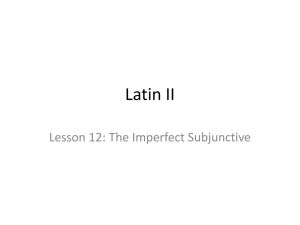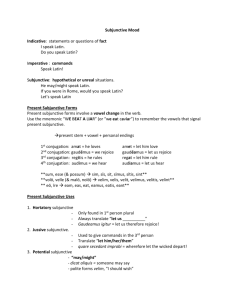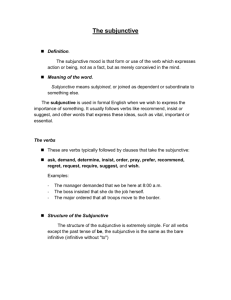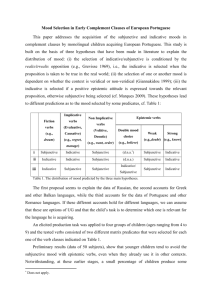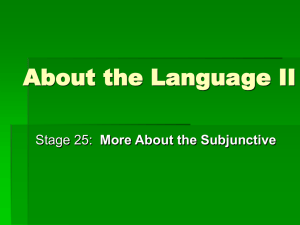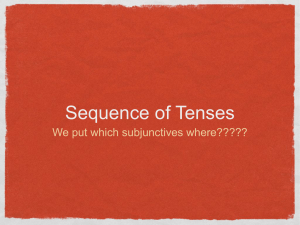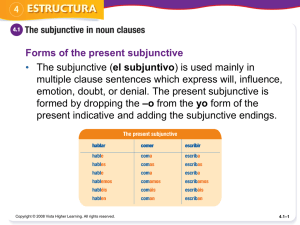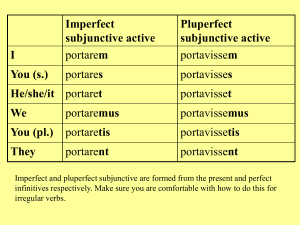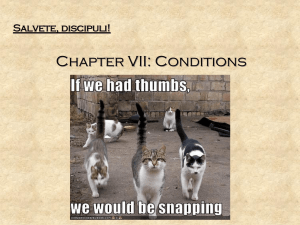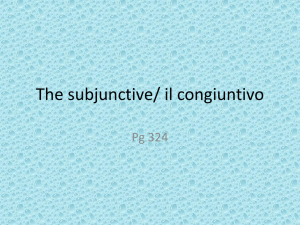Subjunctive Verbs
advertisement
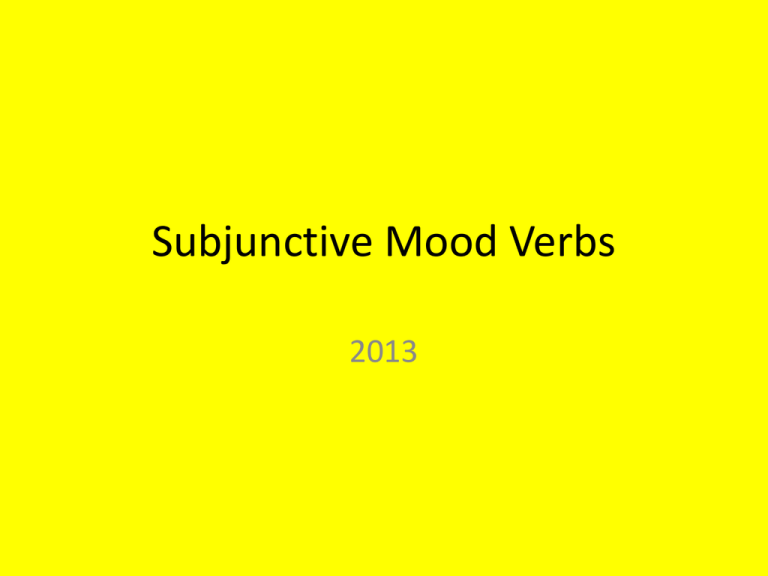
Subjunctive Mood Verbs 2013 What Is the Subjunctive Mood? • You’ve already learned 2 moods of Latin verbs: – 1. the indicative mood, used for statements of fact and asking questions – 2. the imperative mood, used for commands Subjunctive Mood • The subjunctive mood gives more of the speaker’s or writer’s opinion or attitude toward the truth of a statement. • It can be used independently, as a main verb. • It’s often used in dependent clauses, too. Subjunctive Tenses • • • • We’ve learned 6 tenses of Latin verbs. The subjunctive only has 4 tenses! It also has active/passive voice. Tenses: There is no such – Present – Imperfect – Perfect – Pluperfect thing as the future or future perfect subjunctive. Present Tense Subjunctive • The present tense subjunctive uses the same personal endings as regular verbs (swap out “m” for “o” in 1st person singular): • ACTIVE VOICE: PASSIVE VOICE: –M –S –T -MUS -TIS -NT -R -MUR -RIS -MINI -TUR -NTUR Present Tense Subjunctive • Since present tense subjunctive uses the same personal endings, something else has to change to make it different from regular present tense. • It’s all in the VOWELS! Pick Your Mnemonic Device: • • • • • We Beat A Liar She Wears A Tiara The Beans At Brian’s Let’s Eat Caviar! She Reads A Diary -E-EA-A-IA- 1st Conjugation: “A” changes to “E” amo, amare • amo amamus • amas SUBJUNCTIVE! amatis • amat amant amem ames amet amemus ametis ament 2nd Conjugation: “E” changes to “EA” moneo, monere • moneo monemus • mones monetis SUBJUNCTIVE! • monet monent moneam moneamus moneas moneatis moneat moneant 3rd Conjugation: “E” changes to “A” rego, regere • • • rego regimus SUBJUNCTIVE! regis regitis regit regunt regam regas regat regamus regatis regant 4th Conjugation: “I” changes to “IA” munio, munire • munio munimus • munis munitis SUBJUNCTIVE! • munit muniunt muniam munias muniat muniamus muniatis muniant So…what does it do? • A common independent use of the present subjunctive is for something called the volitive subjunctive. (remember “volo” for “wish/want”?) • It expresses the speakers wish, or desire, that something be done. Volitive Subjunctive • Let them prepare dinner. OR They should prepare dinner. Cenam parent. (paro, parare: prepare) • Let’s/let us explore the forest. Silvam exploremus. (exploro, explorare) • Ne silvam exploremus. Let’s not explore the forest. Volitive Subjunctive • The volitive subjunctive is translated by “let” or sometimes “should.” • The negative is “ne” (not “non”). • It works as a main verb. • Other names for volitive: hortatory (for 1st person plural “let’s…”), jussive (from “iubeo: to order”) Practice! • Write the present tense subjunctive charts for the following verbs: – porto, portare – doceo, docere – pono, ponere – audio, audire
